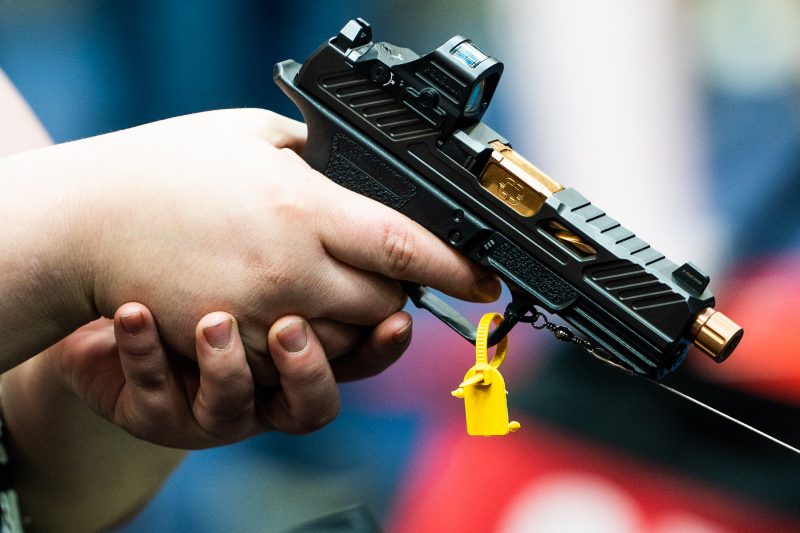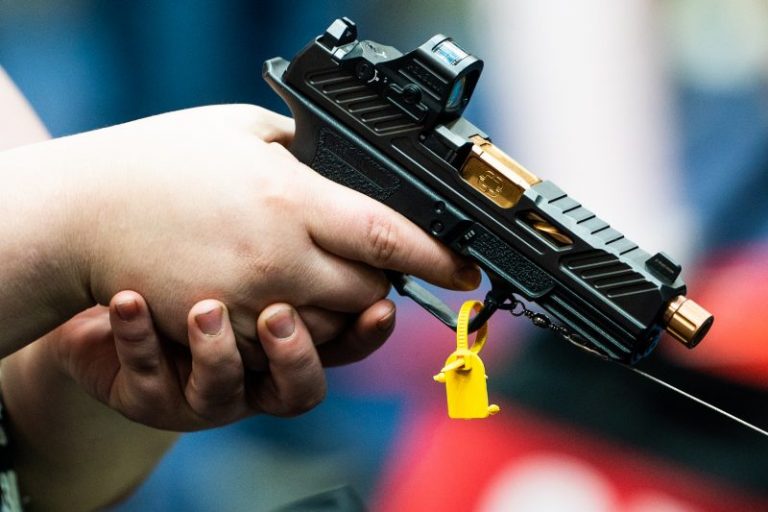
One of the glitches in the American political system is that complicated debates and multifaceted issues are boiled down to electoral choices between two candidates. This is ameliorated to some extent — in a manner of speaking — by the increased nationalization of political debates and the rise in partisan homogeneity on issues. But one result is that elected officials are able to pick and choose between priorities instead of responding to constituent demands.
Polling on gun policy provides a good example of this glitch. Policies aimed at tightening access to firearms are broadly popular and have remained popular for an extended period of time. But those policies aren’t implemented at the federal level because there’s little incentive for Republican politicians to advance them.
New data from Pew Research Center shows both aspects of this issue: that restrictions on gun ownership are popular and that there’s a wide partisan divide that provides a disincentive for Republicans to act. In fact, the data shows, the gap between Republicans and Democrats on these policies is wider than that between gun owners and non-owners.
Pew asked about eight possible policy proposals. The four that were more restrictive — limiting purchases by minors and those with mental illnesses, and banning purchases of certain weapons and accessories — had majority support. The four proposals that would increase the number of available guns didn’t.
The most popular policy is one that would block gun sales to people with mental illnesses. In part because Republicans have often cited mental illness as a factor in mass shootings (preferring that argument to one centered on gun possession), both parties support this idea. On all of the other proposed policies, Democrats are more supportive of restrictions, and Republicans are more supportive of new permissions.
(Pew’s data actually includes both members of parties and independents who tend to vote with one of the parties, a group often referred to as “leaners.” For the sake of convenience, I’m simply using the party descriptors here.)
Pew also broke out responses between those who do and don’t own guns. Gun owners were more likely than non-owners to support more permissive policies and to oppose more restrictive ones. But when we overlap gun ownership with party, something interesting happens: gun-owning Democrats are more likely to support new restrictions than are Republicans who don’t own guns.
In fact, on every issue except restricting sales to those with mental illness (where there wasn’t a significant gap), the divide between gun owners and non-owners was narrower than that between Democrats and Republicans. At times, that gap was wide, ranging from three to 17 points.
There are four policies that a majority of Republicans support. Two of them are ones that a majority of Americans also support. For a Republican elected official, then, supporting those two — limiting sales by age and for those with mental illness — would seem like an easy political achievement.
Except that there are two other factors that aren’t captured in this poll. The first is that new restrictions on gun ownership have been cast as inherently conflicting with the Second Amendment, a position reinforced actively by groups such as the National Rifle Association. The second, overlapping factor is that it’s actually easy to do nothing at all. There are a lot of things a Republican could prioritize over new gun restrictions without frustrating their base, so they do.
Research from Pew published earlier this month reflects that. Gun violence is increasingly seen as a problem by Americans — but Democrats are twice as likely to see it is than are Republicans. (Republicans, instead, see “violent crime” as more of a problem.) On a list of 16 issues that could be identified as a “major problem” in the United States, Republicans ranked gun violence 10th.
So given that lack of demand, more restrictive gun policies aren’t implemented.


Comments are closed.